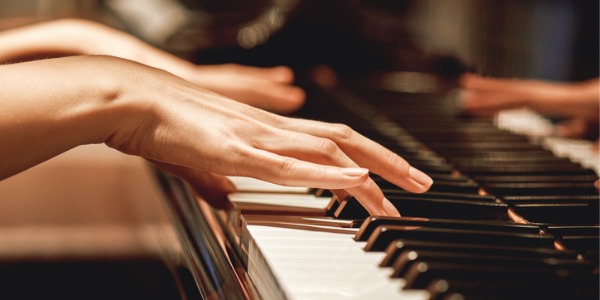What is a Piano Accompanist?
A piano accompanist is a musician who plays the piano to support another performer, like a singer, instrumentalist, or group. Their job is to follow the main performer’s timing and style, providing the right musical background so the performance sounds complete and polished. Unlike solo pianists, accompanists focus on blending with others rather than standing out.
Piano accompanists often work in schools, music studios, theaters, churches, or concert halls. They rehearse with the performers, learn a wide variety of music, and sometimes even help with musical interpretation or arrangements. A good accompanist needs to listen carefully, adapt quickly, and play in a way that enhances the main performance.
What does a Piano Accompanist do?

Duties and Responsibilities
The duties of a piano accompanist can vary depending on the setting and the needs of the performers. Common responsibilities include:
- Providing Musical Support: The main job is to support other performers, like singers or instrumentalists, by playing the piano. The accompanist listens carefully and adjusts their playing to create a balanced and harmonious performance.
- Rehearsing and Preparing: Accompanists practice with the performers to refine the music. They learn the score, understand dynamics, and work on tempo, phrasing, and expression to match the lead performer’s style.
- Sight-Reading and Improvising: Accompanists are often skilled at reading music they’ve never seen before. They can also improvise or add small musical touches to enhance the performance.
- Collaborating and Communicating: They work closely with musicians, conductors, and singers, following cues and adjusting to changes in tempo or dynamics for a smooth performance.
- Adapting to Different Contexts: Accompanists work in concerts, rehearsals, auditions, or studios. They need to be flexible and comfortable in different environments, including live performances.
- Professionalism and Etiquette: Being punctual, prepared, and respectful is essential. Accompanists must be reliable and focused on supporting the main performers.
Types of Piano Accompanists
Piano accompanists can specialize depending on the context:
- Vocal Accompanist: Supports solo singers or choirs with harmonies, rhythms, and dynamics tailored to the vocalist.
- Instrumental Accompanist: Plays alongside instrumentalists like violinists or flutists, providing rhythm and harmonic support.
- Collaborative Pianist: Works with chamber groups or mixed ensembles, adapting to different musical styles and interacting closely with other musicians.
- Studio Accompanist: Plays in recording studios, following precise timing and capturing the desired expression for recordings.
- Ballet Accompanist: Provides music for ballet classes and rehearsals, following dancers’ movements and rhythms to support their performance.
What is the workplace of a Piano Accompanist like?
The workplace of a piano accompanist can vary depending on their role. Many work in schools, music studios, or universities, where they spend time rehearsing with students, teaching, and preparing for performances. They often work closely with singers or instrumentalists to help them practice and perform at their best.
Some accompanists work in concert halls, theaters, or recording studios. In these settings, they may perform live with soloists, ensembles, or orchestras, or record music for albums, films, or other projects. They need to adapt to the style of the performance and be ready for unexpected changes during live shows.
Other accompanists work in ballet studios, churches, or community centers, providing music for classes, services, or local events. No matter the setting, the job combines practice, performance, and collaboration, and requires flexibility, good listening skills, and the ability to support the main performers effectively.
Frequently Asked Questions
Music-Related Careers and Degrees
Careers
- A&R Administrator
- A&R Coordinator
- A&R Representative
- Booking Agent
- Cabaret Performer
- Choir Director
- Composer
- Conductor
- Digital Remastering Engineer
- Drag Performer
- Ethnomusicologist
- Jingle Writer
- Librettist
- Live Sound Engineer
- Lyricist
- Music Arranger
- Music Artist
- Music Business Manager
- Music Contractor
- Music Copyist
- Music Critic
- Music Editor
- Music Executive
- Music Historian
- Music Librarian
- Music Manager
- Music Producer
- Music Promoter
- Music Publicist
- Music Publisher
- Music Supervisor
- Music Teacher
- Music Therapist
- Music Studio Owner
- Musician
- Orchestrator
- Performer
- Piano Accompanist
- Piano Tuner
- Recording Engineer
- Road Manager
- Session Musician
- Singer
- Songwriter
Degrees
Piano Accompanists are also known as:
Collaborative Pianist